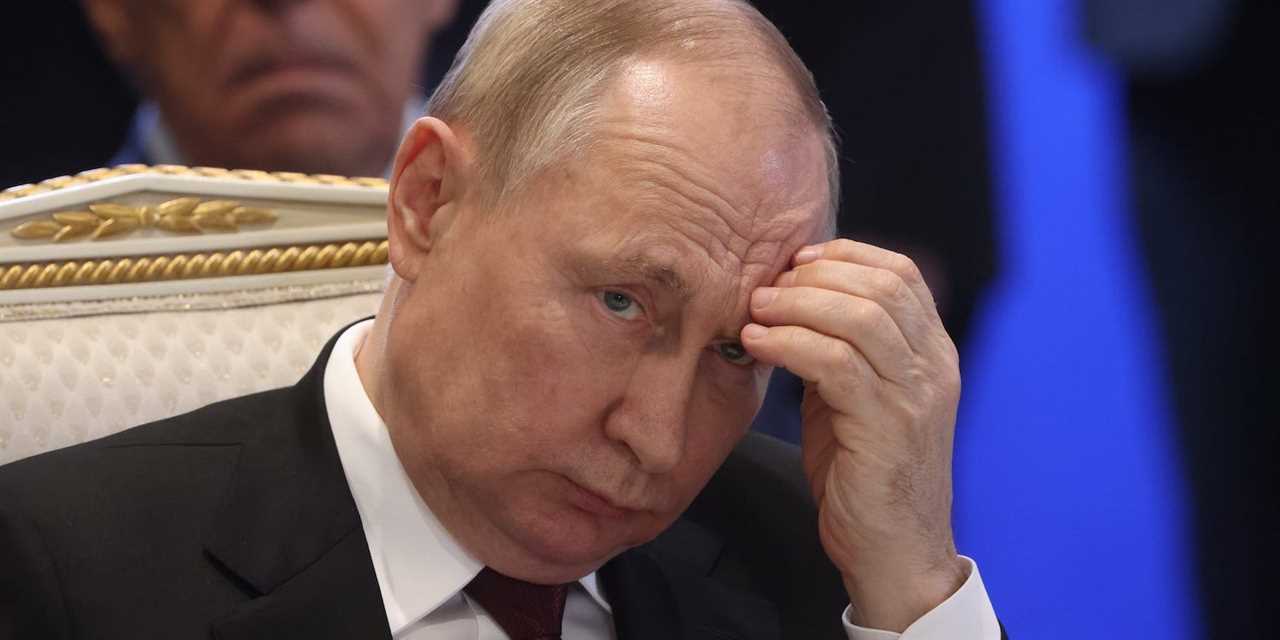
Contributor/Getty Images
- Russia's economy is adjusting to the sanctions imposed on it after Moscow began its war on Ukraine.
- As a result, the country has lost the largest markets for its exports.
- The shrinking market for Russia's resources will force the Kremlin to cut spending on infrastructure and social programs.
Russia's economy has been transformed in nearly ever way since Vladimir Putin launched his war on Ukraine last year.
While the World Bank sees a smaller contraction than expected, and the International Monetary Fund forecasted some growth in 2023, top scholars outlined how the country has adjusted to the Western sanctions imposed on it since the invasion.
For example, Russia has lost its largest export markets, reducing its bargaining power. So Russia is selling its crude to a "truncated" market for around $50 per barrel, or just half of its breakeven price, Wharton Business School professor Philip Nichols told Insider.
"Russia is able to make up the difference by drawing on the foreign currency reserves in its National Wealth Fund, but those reserves are shrinking," he said.
Eventually, the smaller market for Russia's resources will force the Kremlin to cut spending on infrastructure and social programs, Nichols added.
Meanwhile, Russia has had to search for substitutions to trading partners that the Kremlin deems as "unfriendly countries," which represent over 50% of the global economy, per a report from Finland's central bank.
As a result of deteriorating relationships with other countries, Russia is orienting towards partners that did not impose sanctions like China and Turkey.
To trade with them, Russia must build more infrastructure, such as oil pipelines, to minimize exposure to the West, said Boston College's Aleksandar Tomic.
"However, the war in Ukraine is definitely imposing costs on Russia, and there must be realignment to support the effort which is not likely to end any time soon," he added.
And car imports from China have increased as Russian auto manufacturing collapsed, Tania Babina, a business professor at the Columbia Business School, told Insider.
Finally, airlines, pharmaceuticals, and industries that require "sophisticated materials" have been hit hard too, Nichols said.
This is due to highly skilled workers fleeing the country, resulting in less productivity. Also, these industries rely on sophisticated machinery, which need a continued supply of replacement parts that are now harder to obtain because of sanctions.
"This cannot be turned around in a short period of time; the Russian economy is going to feel the effects of this downgrade for a long time," said Nichols.
Read More
By: [email protected] (Morgan Chittum)
Title: How Russia's large-scale war efforts have warped the country's economy, according to top scholars
Sourced From: markets.businessinsider.com/news/stocks/vladimir-putin-russia-economy-ukraine-invasion-china-dependence-kremlin-oil-2023-4
Published Date: Tue, 11 Apr 2023 15:13:08 +0000
Did you miss our previous article...
https://trendinginbusiness.business/business/should-adults-be-financially-independent-after-18-boomers-think-so-but-gen-z-disagrees
.png)





